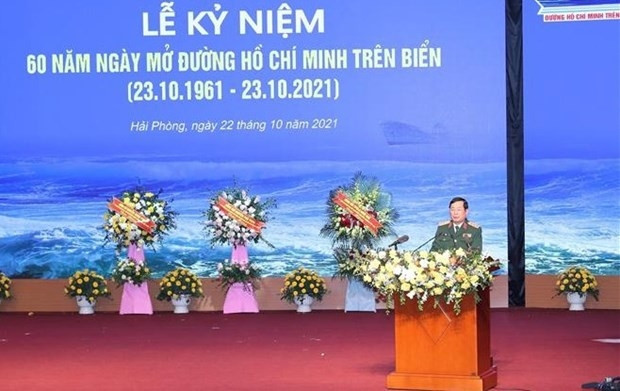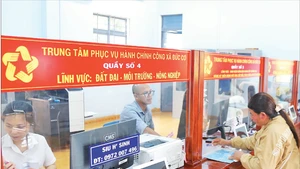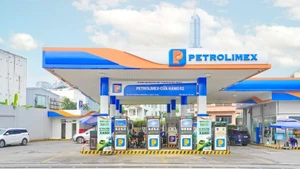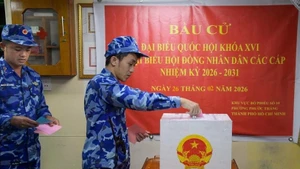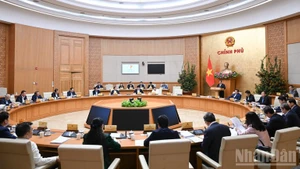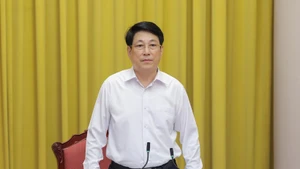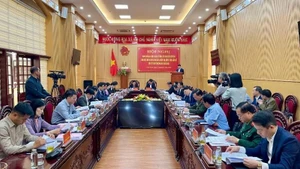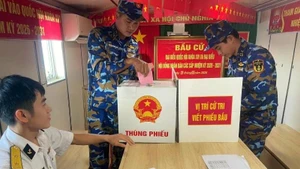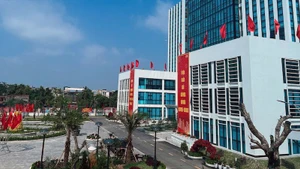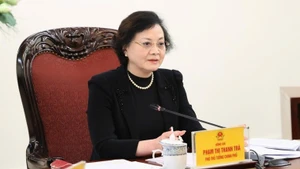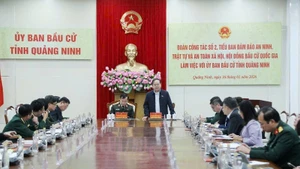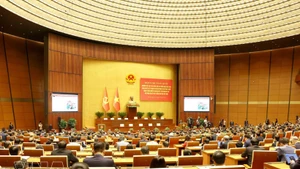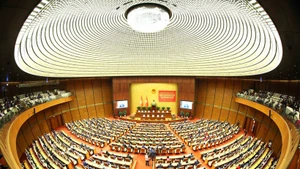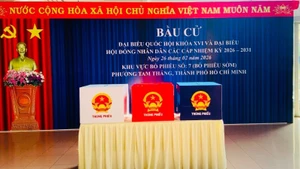The ceremony was held in the northern port city of Hai Phong by the Central Military Commission, the Ministry of National Defence and the municipal People’s Committee on October 22.
Vinh said since it was launched in 1961, Ho Chi Minh Trail at Sea had become a new and important channel for transporting weapons and supplies all the way from the North to the southern front during the resistance war against the US.
The Vietnamese army had taken nearly 2,000 boat trips on the route, carrying about 80,000 personnel, over 150,000 tonnes of weapons and ammunition, and tens of thousands of tonnes of goods to support its troops on major battlefields in the South, that could not be done by road, he noted.
He described it as a shining symbol of the revolutionary heroism and the Vietnamese army’s intelligence, braveness, and determination to liberate and unite the nation. It is such an innovative and strategic initiative of President Ho Chi Minh and the Communist Party of Vietnam, he stressed.
The deputy minister went on to say that to fulfill today’s missions, forces on duty at sea and on islands, particularly the Vietnam People’s Navy, must successfully implement the Party's policies and the State’s laws relating sea and islands, thus turning Vietnam into a strong and rich country based on the sea-borne economy.
He also urged the forces to safeguard the country’s security, independence, sovereignty and territorial integrity and strengthen international marine cooperation to maintain a peaceful and stable environment for national development.
During the anti-US war, the Ho Chi Minh Trail was deemed a “strategic road through jungles” while the Ho Chi Minh Trail at Sea was associated with the secret transport ships without numbers.
The existence of these two mysterious routes caused extreme difficulties for the US military and the South Vietnam government, who made many attempts to prevent the northern army from supporting the southern battles.
